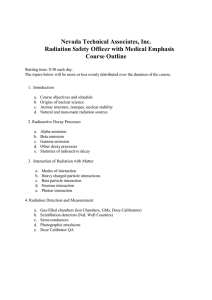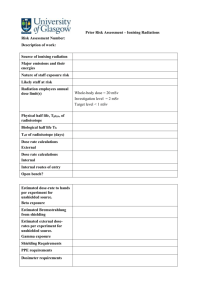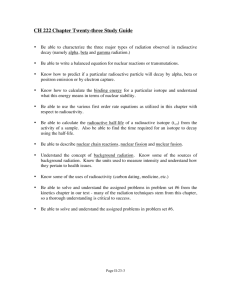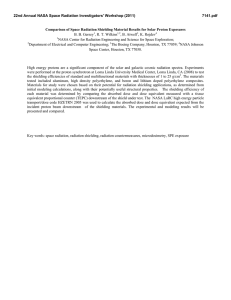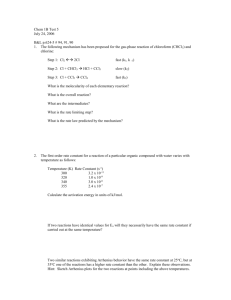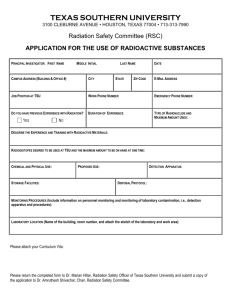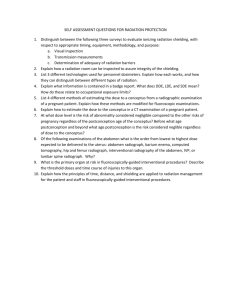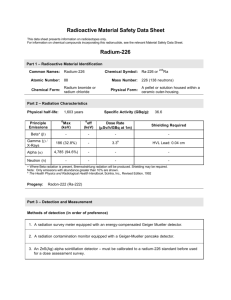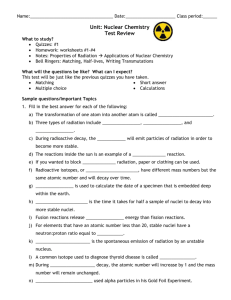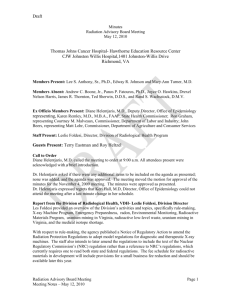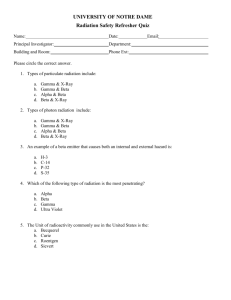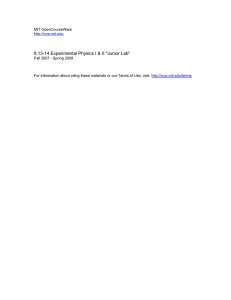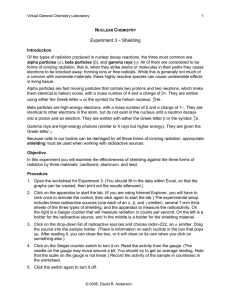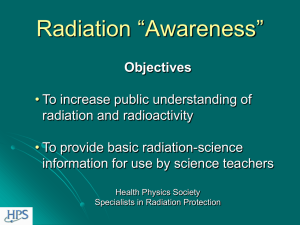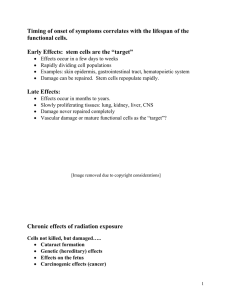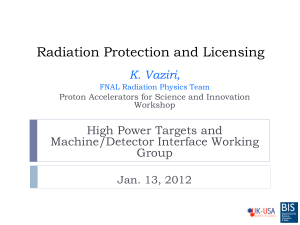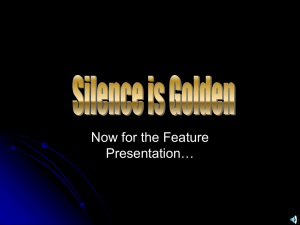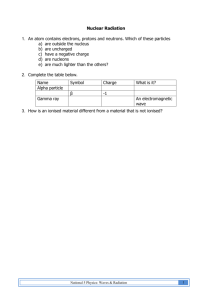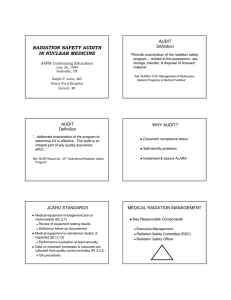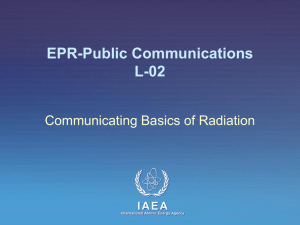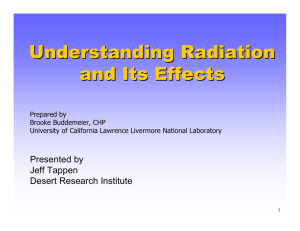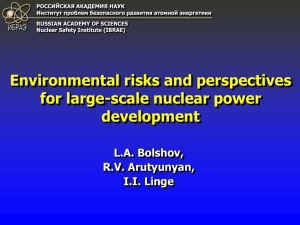Nevada Technical Associates, Inc. Medical Radiation Safety Officer
advertisement
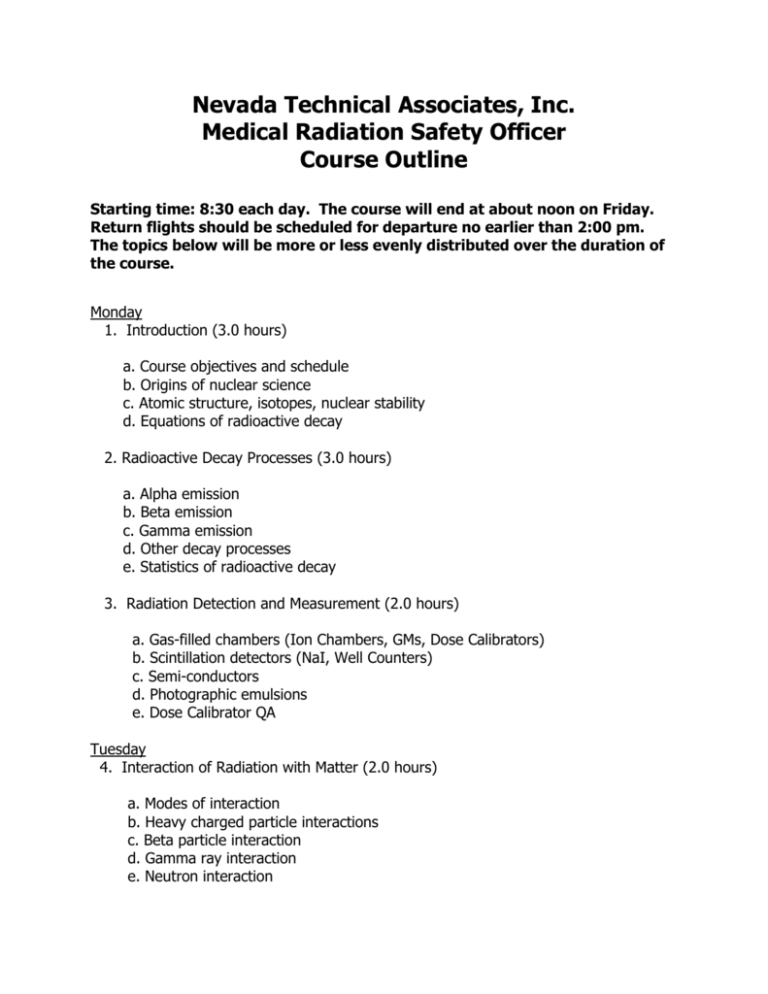
Nevada Technical Associates, Inc. Medical Radiation Safety Officer Course Outline Starting time: 8:30 each day. The course will end at about noon on Friday. Return flights should be scheduled for departure no earlier than 2:00 pm. The topics below will be more or less evenly distributed over the duration of the course. Monday 1. Introduction (3.0 hours) a. Course objectives and schedule b. Origins of nuclear science c. Atomic structure, isotopes, nuclear stability d. Equations of radioactive decay 2. Radioactive Decay Processes (3.0 hours) a. Alpha emission b. Beta emission c. Gamma emission d. Other decay processes e. Statistics of radioactive decay 3. Radiation Detection and Measurement (2.0 hours) a. Gas-filled chambers (Ion Chambers, GMs, Dose Calibrators) b. Scintillation detectors (NaI, Well Counters) c. Semi-conductors d. Photographic emulsions e. Dose Calibrator QA Tuesday 4. Interaction of Radiation with Matter (2.0 hours) a. Modes of interaction b. Heavy charged particle interactions c. Beta particle interaction d. Gamma ray interaction e. Neutron interaction 5. Biological Effects of Radiation (2.0 hours) a. Radiation quantities and units b. Quality factors c. Biological effects d. Mechanisms of biological damage e. Acute, whole-body gamma radiation f. Acute, skin effects due to fluoroscopy g. Risk of stochastic effects h. Fatality rates in various industries i. Radiation dose from natural and man-made sources 6. Shielding (2.0 hours) a. Charged particle shielding (Nuclear Medicine/PET) b. Photon shielding (X-Ray Facilities) c. Neutron shielding (Linear Accelerators) d. Facility shielding 7. Personnel Radiation Dosimetry Devices and Methods (1.0 hour) a. External monitoring b. External dose evaluation c. Internal monitoring d. Internal dose assessment Wednesday 8. Federal and State Regulations (4.0 hours) a. Chronology of standards b. Sources of standards, recommendations and requirements c. Regulatory Bodies (NRC, FDA, JCAHO, DOH) d. Current regulations (10 CFR 20, 10 CFR 35) e. Licensing procedures f. Human Subject Research Requirements g. Security Requirements/Increased Controls 2 9. Radiological Safety Surveys, Records and Documentation (3.0 hours) a. Surveys and inspections (Nuclear Medicine, Radiation Therapy) b. Radiological Controls and ALARA c. Records and documents (Dose tracking, Written directives) d. Operating and emergency procedures and document control Thursday 10. Radioactive Material Transportation and Disposal Regulations (2 hours) a. Applicable regulations b. Categories, packaging and limits c. Manifests, records, markings, and labels d. Radwaste disposal methods, sites, records and regulations 11. Radiological Emergencies (1.5 hours) a. Definitions, classifications and phases b. Notifications and assistance c. Response: patient decontamination and medical evaluations d. Review of accident causes and recent accidents 12. Therapeutic Uses of Radiation (1.5 hours) a. I-131 b. LDR (Prostate, GYN, Eye Plaque) c. HDR d. Microspheres e. Written Directives f. Dealing with Radioactive Patients 13. Fluoroscopy Safety (1.5 hours) a. Factors affecting patient and staff dose b. Credentialing of Fluoroscopy Users Friday 14. RSO Responsibilities (1.5 hours) a. NRC/State requirements b. Training 15. Additional Resources (1 hour) 16. Course exam (1 hour) 3 4
